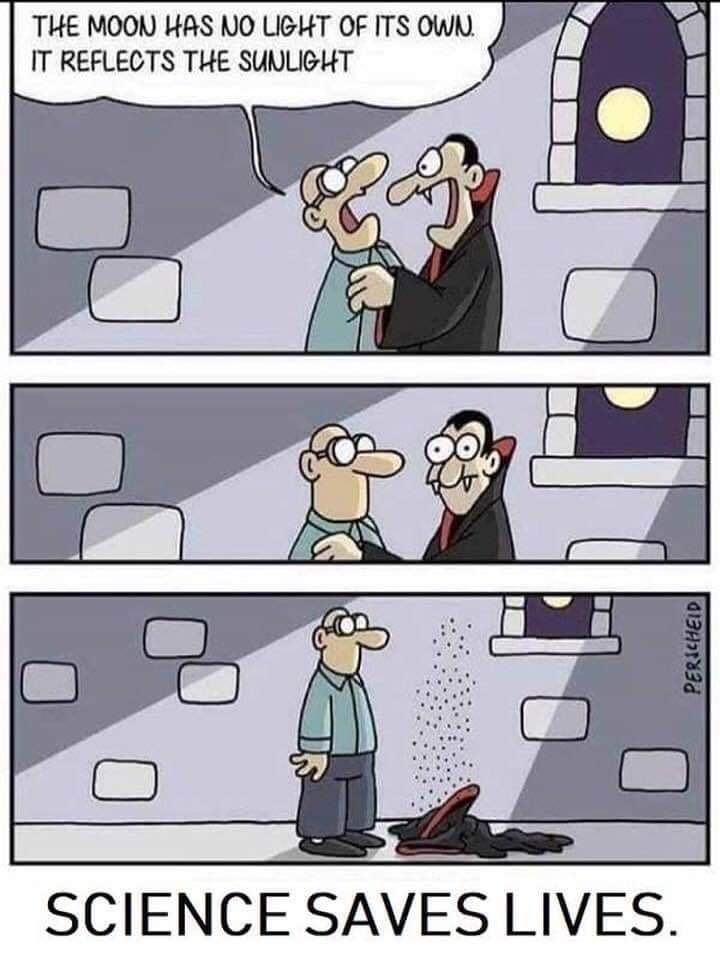I like to think that vampires are just far more sensitive to UV light than humans. That way I can imagine them vacationing on the Riviera, tanning under moonlight.
Spooky 👻 Halloween 🎃 Dark 🦇 Horror 🔪 Memes
In this /c/, we call home
Everyone hail to the pumpkin song!
All year round!
In this case, ordinary glass would negate the UV radiation vulnerability, because glass does not allow the UV to pass through. But keep my upvote 😉
Clear glass only blocks (most, not all) UVB, not UVA.
Then why do we put special uv film on our windows to protect our future and art and selves from damage? https://www.3m.com/3M/en_US/home-window-solutions-us/solutions/uv-protection/
I've never heard of moonburn, so it's reasonable to assume that direct sunlight is required to harm them.
I always thought it was direct sunlight that burned vampires.
UVArrgghhh.
I think it’s some spiritual mumbo jumbo about raw sunlight vs filtered moon(sun)light
You know filtering is a scientific term, right?
Well, yeah, but will it kill a vampire?
Yes, but the moon does not scientifically filter the sun’s sunlight in ways that should affect vampirism
Why not? We don't need to use sunscreen on full moons, and we can safely stare at it.
Ahem:
https://www.ncbi.nlm.nih.gov/pmc/articles/PMC6961272/
Compared with sunlight, the wavelength of full moonlight is generally centered around 400 nm (580 nm for the sun) with a very low energy level (0.2 lx or 0.0024 μmol m− 2 s− 1). The red:far red (R:FR) ratio of sunlight during the day is more than 1.2, while that of moonlight is between 0.18 and 0.22
Intensity (in lumens) is also hugely different (0.09 vs 3,955). Over a 40,000:1 ratio!
They can't be seen in a silver mirror which indicates their reflected light wavelengths go from 400 NM and below. Humans can see from to 380 NM to 700 NM . So, Clearly what kills them is their inability to discharge the visible light wavelengths energy fast enough, they overheat and then turn to dust as shown in Blade/JJBA/Underworld/Buffy/whatever
The light reflected from the Moon doesn't feel (as) warm, while direct sunlight does (winters may be excluded).
